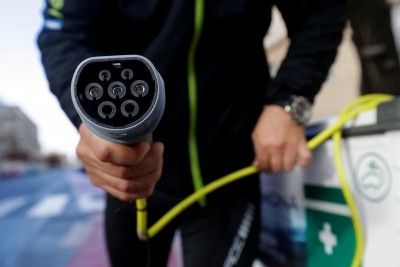
New Delhi, The deployment of solid-state batteries in electric vehicles (EVs) is set to be delayed to 2030 owing to key technical challenges, according to a report.
Recent announcements from solid-state battery developers have suggested deployments by automotive in electric vehicles will begin in the near-term.
However, Strategy Analytics predicts that solid-state batteries will face delay in mass production and further deployment.
With the higher cost, the first deployments will be limited to premium models until technology breakthroughs and production maturity enable volume production for battery electric vehicles in the 2030s timeframe.
"Prior to this, semi-solid-state cells and implementation in hybrid models will provide the test beds for true solid-state battery technology," the report noted.
A solid-state battery has higher energy density than a Lithium-ion battery that uses liquid electrolyte solution.
Toyota has announced that the first deployment of its solid-state battery cells will be in hybrid models, not battery electric, in 2025.
The technology trial was originally planned to take place during the 2020 Tokyo Olympic Games, but that development was delayed due to technical challenges and the pandemic.
Toyota's solid electrolyte is sulfide-based, which requires a moisture-free production environment that would otherwise be prone to generate hydrogen sulfide gas, which threatens the performance of the battery cell.
"Other solid electrolytes have challenges in conducting lithium ions between electrodes," said Kevin Mak, principal analyst in the Global Automotive Practice (GAP).
There are other challenges in producing these electrolytes, including the need for high temperatures and complicated processes, that are presently limiting the ability to achieve volume production and keeping costs high.
"Additionally, the solid structure and fused components in solid-state battery cells are susceptible to delamination when using a silicon anode and pose a challenge to recycling. The dendrite issue doesn't go away either as minute cracks in the solid electrolyte can occur," said Mak.


.jpeg)

